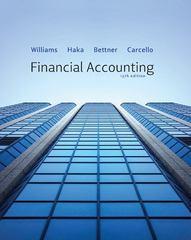Question
1. Suppose Belgium produces only two goods, chocolate and lace. If Belgium has a comparative advantage in lace, a move toward free trade will A.
1.
Suppose Belgium produces only two goods, chocolate and lace. If Belgium has a comparative advantage in lace, a move toward free trade will
| A. | harm chocolate workers in the short run, benefit lace workers, but benefit the nation as a whole. | |
| B. | benefit chocolate workers, harm lace workers in the short run, but harm the nation as a whole. | |
| C. | harm chocolate workers in the short run, harm lace workers, but benefit the nation as a whole. | |
| D. | benefit chocolate workers, harm lace workers in the short run, but benefit the nation as a whole. |
2.
An import ban results in
| A. | an increase in the product's price. | |
| B. | a decrease in the supply of the product. | |
| C. | a decrease in the quantity of the product bought and sold. | |
| D. | all of the above. |
3. A possible reason to impose a protectionist policy such as a tariff is to
| A. | aid other nations in developing their own industries. | |
| B. | slow domestic production. | |
| C. | protect domestic workers from foreign competition. | |
| D. | increase the welfare of domestic consumers. |
4. A possible reason a nation might impose a protectionist policy such as a tariff is to
| A. | encourage specialization in the good in which the nation has a comparative advantage. | |
| B. | increase the level of imports. | |
| C. | protect an infant industry from foreign competitors. | |
| D. | slow domestic production. |
Step by Step Solution
There are 3 Steps involved in it
Step: 1

Get Instant Access to Expert-Tailored Solutions
See step-by-step solutions with expert insights and AI powered tools for academic success
Step: 2

Step: 3

Ace Your Homework with AI
Get the answers you need in no time with our AI-driven, step-by-step assistance
Get Started


